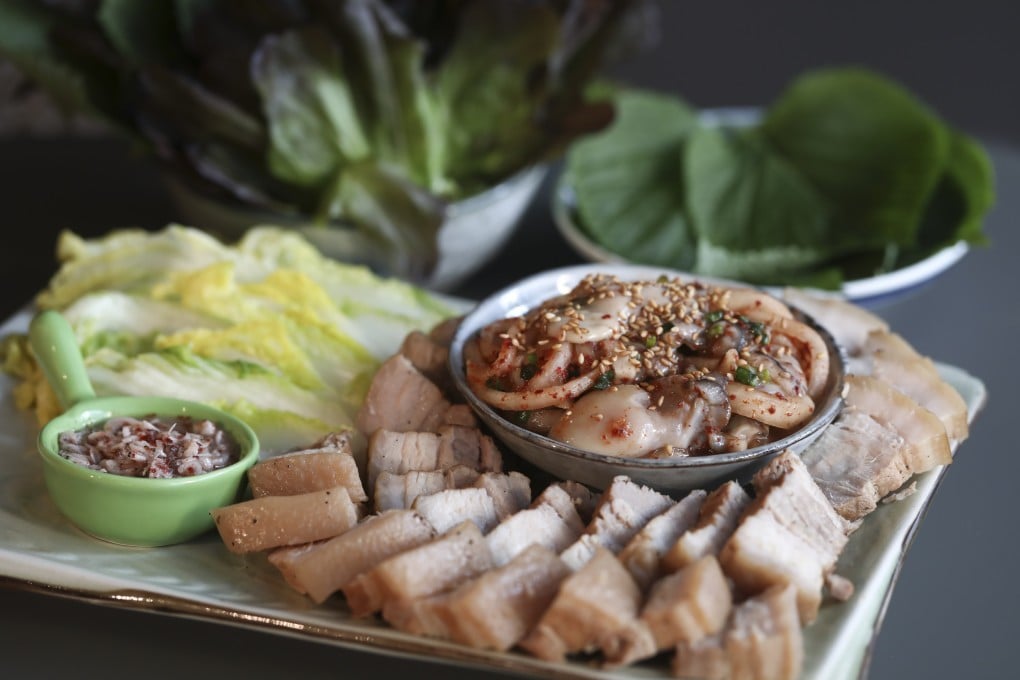How to make Korean pork belly bossam, a light alternative to turkey for Christmas
- Not every holiday feast requires turkey – try pork belly bossam with radish and oyster kimchi as a flavourful alternative

Not every holiday feast requires turkey as the centrepiece. One year, when I was living in San Francisco and unable to make it home for Christmas, my friends and I decided to celebrate the holiday at a restaurant, because none of us had a flat big enough to host a large group.
Rather than go out for an overpriced Western meal (so many places jack up their prices during the holidays), we went to a Korean restaurant. The centrepiece of the meal was pork belly bossam, with kimchi pancakes, mandu (dumplings), bibimbap and chigae. It was a feast.
Pork belly bossam with radish and oyster kimchi
Pork belly bossam is so much more than what has been dismissively described as “boiled meat”. It is actually simmered (I’m aware that’s a minor technicality) and a lot more flavourful than you would expect. The tender pork is a neutral background to the other essential components – tangy, crunchy radish and oyster kimchi, salted shrimp sauce, and an array of leaves (including perilla, or sesame leaf) – that make the dish feel light.
The pork is simmered with aromatics such as ginger, garlic, onion and doenjang (fermented soybean paste), and a rather unusual ingredient: instant coffee. You don’t taste the coffee in the meat – it’s there to give the pork skin a more appetising pale brown colour.
The oysters for the kimchi should be small, preferably no larger than 4cm. I buy frozen Korean oysters (available in bags), but if you are feeling indulgent, use freshly shucked Kumamotos – as many as you are willing to put in the kimchi (but at least a dozen).
The leftover kimchi keeps for at least a week as the salt and other ingredients help to preserve the oysters. If possible, buy Korean radish for the kimchi; it has a sweeter flavour than the Japanese and Chinese varieties. Oysters and pork are delicious together, but if you dislike oysters, leave them out.
Korean salted shrimp (saeu-jeot) comes in brine in small jars; it is not the same as Chinese salted shrimp, which is dry.
